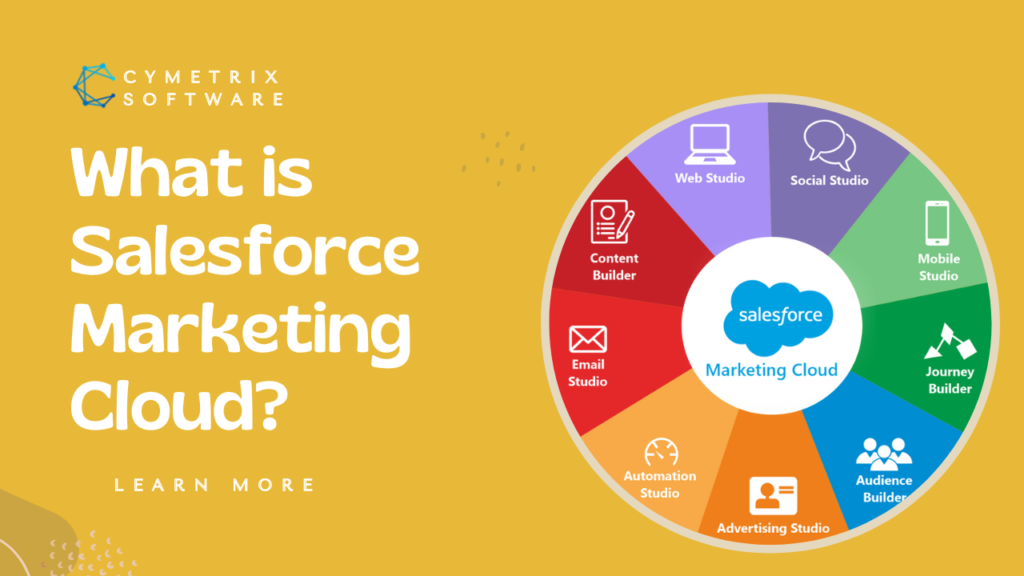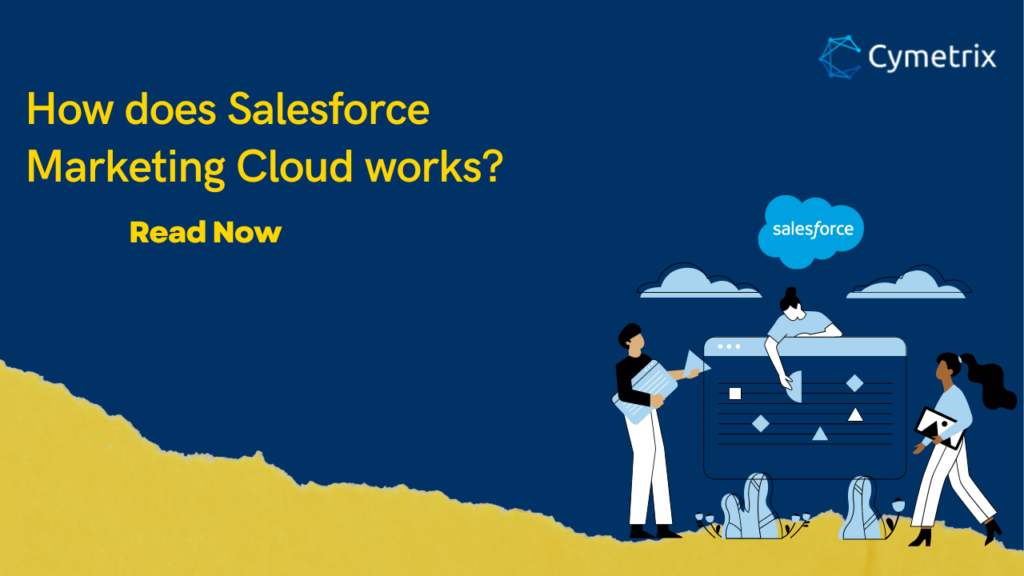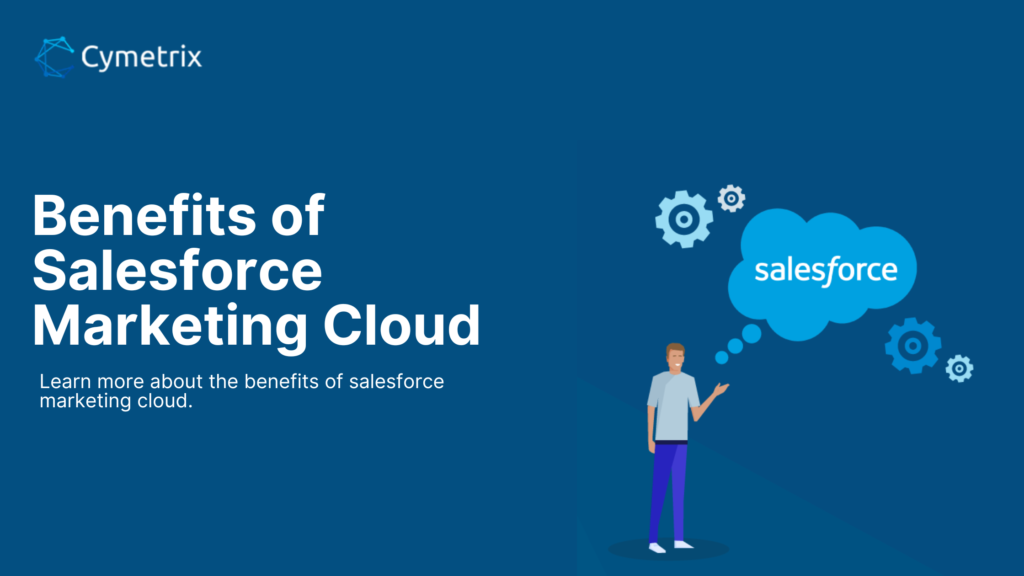
Introduction
In today’s digital age, businesses are constantly striving to enhance their marketing strategies and effectively engage with customers. With the growing importance of marketing automation tools, Salesforce Marketing Cloud has emerged as a leading platform for businesses to manage and optimize their marketing campaigns. In fact, according to a report by Businesswire, the global marketing automation market is expected to reach $9.5 billion by 2027, with a compound annual growth rate of 12.8%. This statistic highlights the significance of marketing automation and the potential impact it can have on a business’s success. In this blog, we’ll explore what Salesforce Marketing Cloud is, and how it works. Along with its benefits, challenges, limitations, use cases, and a comparison with other marketing automation platforms.
Features of Salesforce Marketing Cloud
Salesforce Marketing Cloud is an all-in-one platform that offers a wide range of features to help businesses manage and optimize their marketing campaigns. Let’s take a closer look at some of its key features:
- Email Marketing: Marketing Cloud allows businesses to create and send personalized emails to their customers. The platform includes various tools for designing email templates, segmenting audiences, and tracking email performance metrics.
- Social Media Marketing: It provides businesses with tools to manage social media channels, create content, and track engagement metrics. The platform also enables companies to schedule social media posts in advance and automate social media interactions.
- Mobile Marketing: With Marketing Cloud, businesses can engage with customers through mobile channels such as SMS and push notifications. The platform allows businesses to personalize mobile messages based on customer data and track mobile engagement metrics.
- Advertising: This platform provides businesses with tools to manage and optimize their advertising campaigns across various channels. It involves channels such as search engines, social media, and display networks. The platform also allows businesses to create targeted advertising campaigns using customer data.
- Customer Journey Management: Marketing Cloud enables businesses to create and manage customer journeys across various channels, from email to social media to mobile. The platform provides businesses with tools to automate customer journeys and personalize interactions based on customer data.
- Analytics and Reporting: It is integrated with powerful analytics and reporting tools. That enables businesses to track the performance of their marketing campaigns across various channels. The platform provides businesses with insights into customer behavior and engagement, allowing them to optimize their marketing strategies for better results.

How does Salesforce Marketing Cloud work?
Salesforce Marketing Cloud is a seamless platform that collects customer data from various sources, segments the data, and then uses it to create personalized and targeted marketing campaigns. Let’s take a closer look at how the platform works with a few examples:
Data Collection and Segmentation
Marketing Cloud collects customer data from various sources such as email, website, and social media interactions. The platform then segments the data based on customer behavior, preferences, and demographics. For example, if a customer clicks on a specific product on a website, Marketing Cloud can segment that customer into a group interested in that product and use that information to create targeted campaigns.
Personalization and Automation
Marketing Cloud allows businesses to personalize interactions with customers by using customer data to tailor marketing messages. For example, if a customer has abandoned a shopping cart on a website, Marketing Cloud can send a personalized email reminder to the customer with product recommendations based on their browsing and purchase history. The platform also enables businesses to automate workflows, like sending welcome emails to new customers or scheduling social media posts in advance.
To know more about personalization with Marketing Cloud, we suggest you keep reading about Salesforce Marketing Cloud for Personalization. It will help you understand Marketing Cloud’s role and best strategies for personalization.
Campaign Management
Marketing Cloud provides businesses with a centralized platform to manage their marketing campaigns across various channels, such as email, social media, and mobile. The platform allows businesses to create and launch campaigns, track performance metrics, and optimize campaigns for better results. For example, if an email campaign is not performing well, Marketing Cloud can provide insights into customer behavior and engagement metrics, allowing businesses to adjust their strategy for better outcomes.
In summary, Salesforce Marketing Cloud works by collecting customer data, segmenting it, and using it to create personalized and targeted marketing campaigns. The platform also allows businesses to automate workflows, manage campaigns across various channels, and optimize campaigns for better results. These capabilities will enable you to engage with customers more effectively and improve their marketing outcomes.

Benefits of Salesforce Marketing Cloud
Salesforce Marketing Cloud offers numerous benefits to businesses looking to enhance their marketing strategies. Let’s take a look at some of the key benefits:
- Improved Customer Engagement: Marketing Cloud’s personalized and targeted marketing campaigns help businesses engage with customers more effectively. In fact, according to a study by Salesforce, 84% of customers say being treated like a person, not a number, is very important to winning their business.
- Increased Efficiency and Productivity: Marketing Cloud’s automation capabilities enable businesses to streamline their workflows and increase productivity. For example, the platform can automate email campaigns, social media posts, and other marketing tasks, saving businesses time and resources.
- Better Customer Insights: Marketing Cloud’s analytics and reporting tools provide businesses with valuable insights into customer behavior and engagement metrics. This information can help you optimize your marketing strategies for better outcomes.
- Cross-Channel Marketing: Marketing Cloud allows businesses to manage their marketing campaigns across various channels such as email, social media, and mobile. This cross-channel approach can help you reach customers wherever they are, increasing the chances of engagement and conversion.
- Scalability: Marketing Cloud’s cloud-based platform will allow you to scale your marketing campaigns as the business grows. The platform can handle large amounts of data and automate workflows. That makes it easier for you to manage your marketing efforts as your customer base expands.
If you also want to learn more about the implementation of this platform, read our blog on best practices for implementing salesforce marketing cloud.
Use Cases of Salesforce marketing cloud
Salesforce Marketing Cloud is a versatile platform that can be used in various industries and for various purposes. Let’s take a look at some use cases of Marketing Cloud:
- E-Commerce: Marketing Cloud can help e-commerce businesses improve customer engagement, increase sales, and drive customer loyalty. For example, a clothing retailer can use Marketing Cloud to create targeted email campaigns for customers who have abandoned shopping carts. They can offer personalized product recommendations based on customer behavior. Additionally, send out promotional campaigns to drive sales during specific events or holidays.
- Healthcare: Marketing Cloud can be used in the healthcare industry to improve patient engagement and communication. For example, a hospital can use Marketing Cloud to send personalized emails to patients with appointment reminders, health tips, and information about new services or treatments. The platform can also be used to collect patient feedback and improve the patient experience.
- Travel and Hospitality: Marketing Cloud can help travel and hospitality businesses personalize the customer experience and drive bookings. For example, a hotel chain can use Marketing Cloud to create targeted email campaigns for previous customers. They can offer personalized recommendations for activities and dining options based on the customer’s location and preferences. Moreover,, they can also send out promotional campaigns to drive bookings during slow periods.
Comparison with other Marketing Automation Platforms
Regarding marketing automation platforms, Salesforce Marketing Cloud is one of the most popular choices. However, there are other platforms available on the market that offer similar capabilities. Let’s take a closer look at how Salesforce Marketing Cloud compares to some of its competitors:
- HubSpot: HubSpot is a popular marketing automation platform that offers a range of features. That includes email marketing, lead nurturing, and social media management. While HubSpot is more affordable than Marketing Cloud, it may not be as powerful when it comes to segmentation and personalization. Marketing Cloud also has better capabilities for managing campaigns across multiple channels. So this makes it a more comprehensive solution for larger businesses.
- Marketo: Marketo is a marketing automation platform that focuses on lead management, email marketing, and analytics. While Marketo is a good option for lead management, it lacks some of the more advanced features of Marketing Cloud. That includes features such as social media management and mobile marketing. Additionally, Marketing Cloud’s integration with Salesforce CRM makes it a more seamless solution for businesses already using Salesforce.
- Eloqua: Eloqua is a marketing automation platform that offers email marketing, lead management, and analytics. While Eloqua has some advanced features, it may not be as user-friendly as Marketing Cloud. Additionally, Marketing Cloud’s personalization and automation capabilities are more robust, making it a better option for businesses looking to create targeted and personalized campaigns.
- Pardot: Salesforce Marketing Cloud and Pardot are often mistaken as the same platform. However, they differ a lot from each other. Marketing Cloud specializes in personalizing and multi-channel (Email, social, web, mobile) automation, whereas, Pardot is more targeted toward lead nurturing.
Wrapping up
In conclusion, Salesforce Marketing Cloud is a powerful marketing automation platform that can help businesses enhance their marketing strategies and achieve better outcomes. Its versatile features and automation capabilities make it a comprehensive solution for organizations looking to improve customer engagement and drive sales.
For businesses looking to leverage the power of Salesforce Marketing Cloud, partnering with a trusted Salesforce consulting partner like Cymetrix. We can help streamline the implementation process and ensure a successful outcome. Cymetrix is an experienced Salesforce consulting partner that can help businesses implement, customize, and optimize Salesforce Marketing Cloud to meet their specific needs.
If you’re interested in learning more about how Cymetrix can help your business achieve its marketing goals with Salesforce Marketing Cloud, contact us today to schedule a consultation. Our team of experts is ready to help you take your marketing strategy to the next level.
